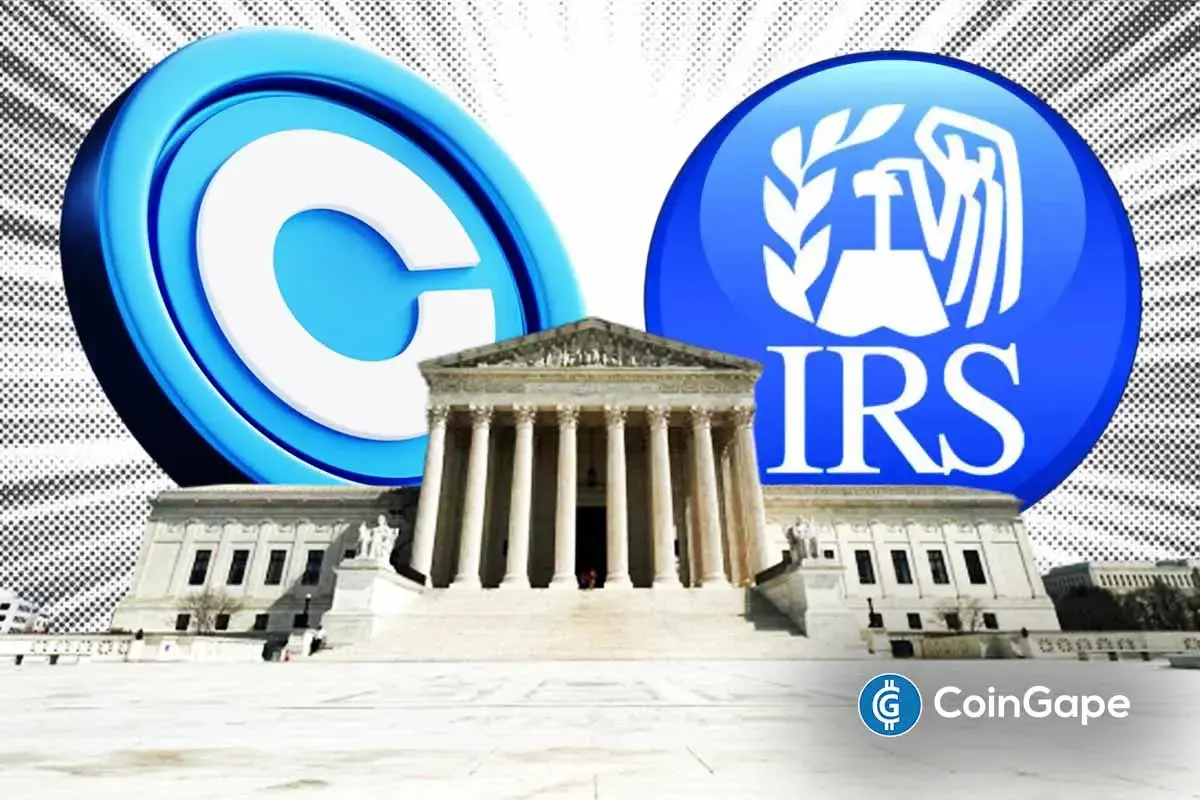The US Supreme Court has made a critical ruling, which could have a significant impact on the crypto industry. The Apex court ruled in favor of the IRS in a case involving the summons that the tax agency had issued to Coinbase to access user data.
US Supreme Court Refuses To Rule Against IRS Summons
According to the Bloomberg report, the court refused to question whether the Internal Revenue Service (IRS) had the authority to issue a summons that forced Coinbase to release the transaction information of over 14,000 customers.
The US Supreme Court justices reportedly failed to explain why they rejected the appeal from the Coinbase user who had appealed the legality of the IRS summons. The user argued that the IRS had violated his rights under the Constitution’s Fourth Amendment by accessing his data through the top crypto exchange.
Specifically, the Coinbase user, James Harper, asked the court to revisit a 1976 ruling that stated customers don’t have privacy rights regarding records held by their banks. This Supreme Court decision, therefore, upholds that 1976 ruling and suggests that this rule will still apply to crypto platforms that provide financial services.
In 1976, the US Supreme Court ruled that the Fourth Amendment doesn’t apply to records that third parties, such as banks, hold. The Fourth Amendment protects individuals from unreasonable searches and seizures.
Prior to this recent Supreme Court ruling, a federal appeals court upheld the IRS summons, which enabled Coinbase to provide the tax agency access to these users’ data. The summons was part of an investigation regarding an alleged widespread underreporting of capital gains on crypto assets.
Harper argued that the “lower court’s ruling will effectively strip millions of Americans of meaningful privacy protections over their most sensitive financial data – simply because they use modern financial service providers.”
Meanwhile, it is worth mentioning that Coinbase joined Harper in asking the US Supreme Court to rule on the case. The exchange revealed that it had done its best to fight the IRS summons before ultimately having to surrender the users’ data to avoid contempt of court.
Investment disclaimer: The content reflects the author’s personal views and current market conditions. Please conduct your own research before investing in cryptocurrencies, as neither the author nor the publication is responsible for any financial losses.
Ad Disclosure: This site may feature sponsored content and affiliate links. All advertisements are clearly labeled, and ad partners have no influence over our editorial content.


✓ Share: